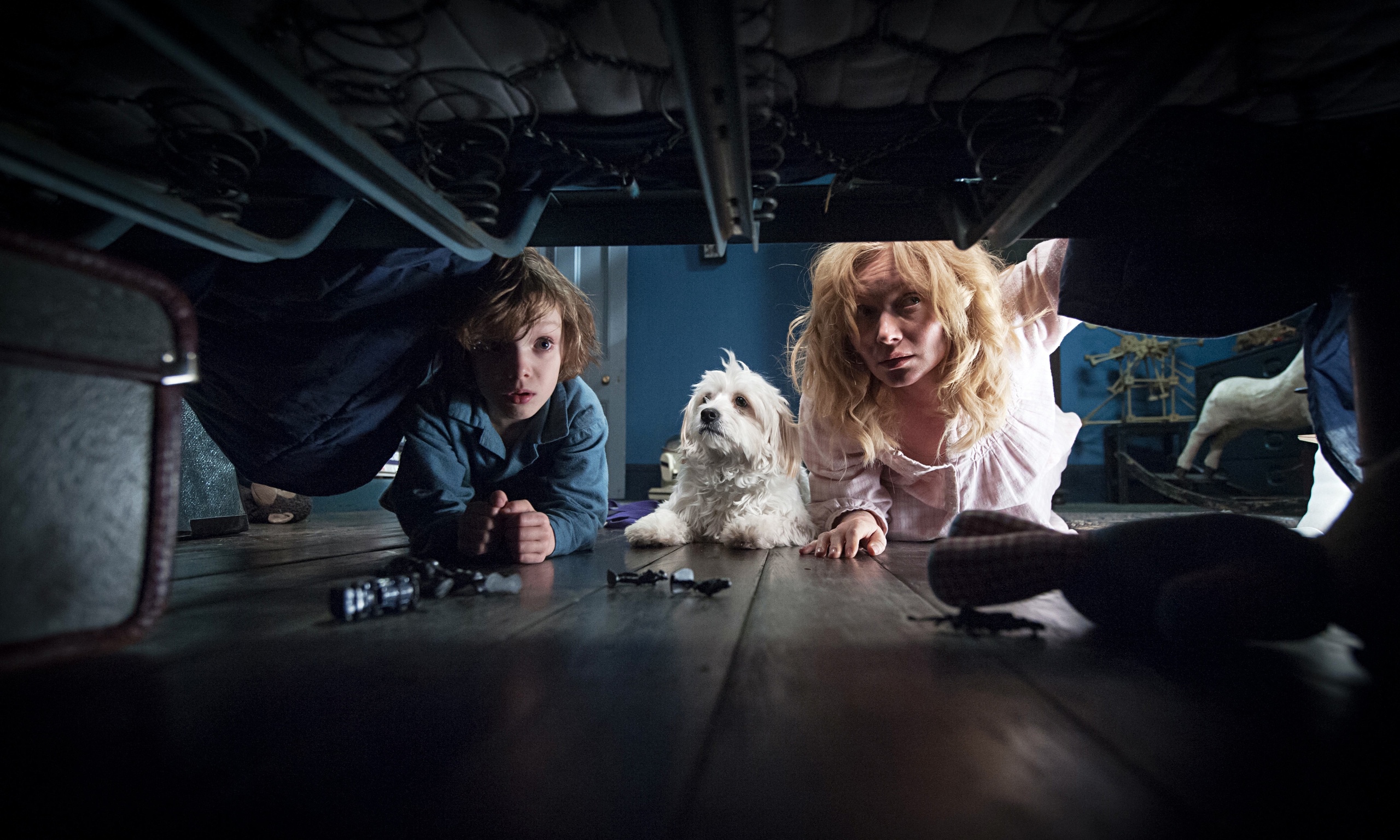
MPAA Rating: R | Rating: ★★★★
Release year: 2014
Genre: Horror, Thriller Director: Kent
I have a love/hate relationship with the horror genre. I’ve argued for a theology of horror films, recognizing spiritual themes and beautiful truths within the horrific images and narratives of these movies. However, I have a confession to make: horror movies scare me. Like, keep-a-pillow-nearby-to-cover-my-eyes scared. Yeah, I know: that’s the whole point. A non-scary horror film isn’t really fulfilling what it intended to accomplish. To confront the things that scare us, to open ourselves up to the fear and enter into it, wading into the terror and anxiety until we pass through the other side into the realm of confidence and courage–that’s something the horror genre has the power to do to its audience. Scripture states that perfect love drives out fear. This statement only recognizes fear’s existence and dominion, as it requires an active purging of the fear through the power of love. To drive out pain and death, one must be able to look fear in the face and walk straight into the valley of death, for love is present.
Such is the story of The Babadook, an Australian horror film about fear, grief, longing, and love. The film opens in the midst of a nightmare inside the mind of Amelia (Essie Davis), a subconscious recall of a past tragedy. On the drive to the hospital for the birth of their son, a car accident left Amelia to care for their new son without a husband. Her relationship with her boy Samuel (Noah Wiseman) is tainted with grief and guilt from the moment of his emergence into the world. Every time Amelia looks at her son, she is inevitably reminded of the loss of her husband.
Samuel is a high maintenance child. He requires checking every nook and cranny of the house before bed to expose the hidden monsters. There’s the nightly routine of reading strange storybooks or watching amateur magic performances, or the moment Amelia is called into the principal’s office after homemade weapons are found in his locker. He is pale and screechy, overly sensitive and a bit socially odd. Few people seem to truly understand and enjoy Samuel, including his mother, which only increases her feelings of shame. Any parent of a young child can empathize with the exhausted look on Amelia’s face. The sleepless nights due to depression and his constant neediness are certainly getting to her, grinding her down to the shell of a person.
Samuel’s fear of monsters is made manifest with the discovery of a macabre children’s pop-up book on their bookshelf. Mr. Babadook, the titular character, is a shadowy figure of unknown origin, but his agenda is clear–once he’s entered your life, you can’t get rid of the Babadook. Disturbing images in the book make Amelia try to ignore it or destroy it, but the book strangely keeps coming back, popping up in their life with the alarming interruption like an unexpected knock at the door in the late hours of the night. Accompanying the book is a menacing presence, leaving Amelia questioning her own sanity and Samuel wondering if the monster has his mother in its grasp. As Amelia’s lack of sleep, unsettled grief, and Samuel’s neediness continue to escalate, the monster’s influence becomes pervasive, threatening to destroy all within the house.
Filmmaker Jennifer Kent uses atmosphere, sound, design, excellent cinematography, and an affecting story to create one of the most compelling horror films I’ve experienced. There isn’t much gore or violence, just a linger sense of dread and an unsettled feeling about the unknown nature of the Babadook. The design for the Babadook creature is like a German expressionism vision of Jack the Ripper, certainly a nod to The Cabinet of Dr. Caligari. Kent builds the horror around the relationship between a mother and her child, an image we can certainly empathize with as an audience, and which makes the danger so much more palatable. These aren’t foolish teenagers wandering into a cabin in the woods, or a celebration of gore and violence at the hands of a sadistic killer. It’s an examination of parenthood, familial love, and the brokenness we experience despite our best efforts. Single parents or those who have experienced depression might even find comfort in The Babadook‘s narrative.
What makes The Babadook so effective is that the monster is a perfect personification of fear. It cannot be categorized as a subconscious projection from Amelia’s grief, as if the horrors were only imagined in her shattered mind. Neither is it a wholly independent entity. It is both, paradoxically autonomous from Amelia while intricately intertwined with her being, particularly her grieving heart. This is fear–it dwells within us and around us, seeming to have a life of its own, irrational yet effectively powerful. How does one overcome fears, especially the emotional ones brought on by past griefs and tragedy? The Babadook suggests that we may never fully vanquish our fears, but that we can control them, staring them in the face and removing them of their power. Only when our fear and shame is brought into the light can grace prevail and freedom be realized.
The film landed at #7 in the Arts and Faith Ecumenical Jury Top 10 Films of 2014. The horror genre is done best when it personifies and examines our real-life struggles and fears, forcing us to confront that which we would rather avoid. Those fears may not leave us alone, but with time we can manage the anxious terrors hidden in the dark corners of our soul.
IMDB Listing: http://www.imdb.com/title/tt2321549